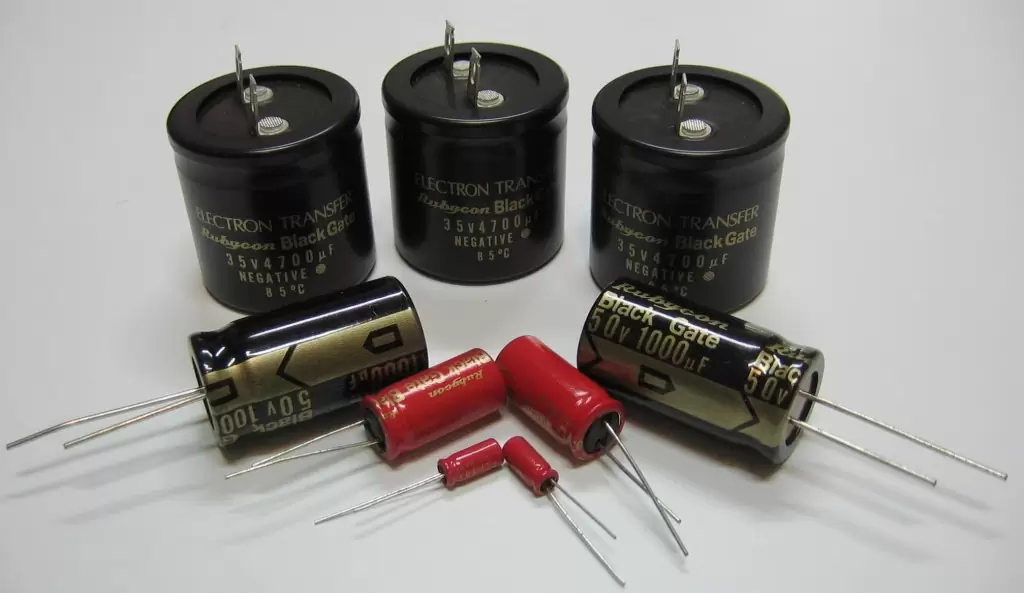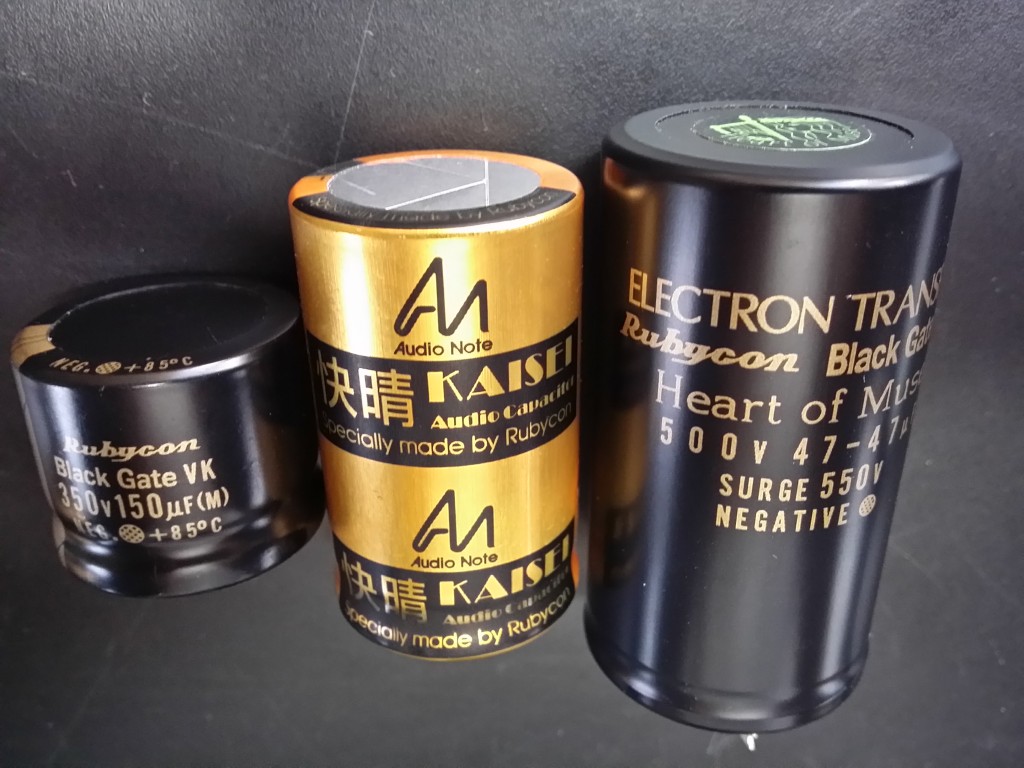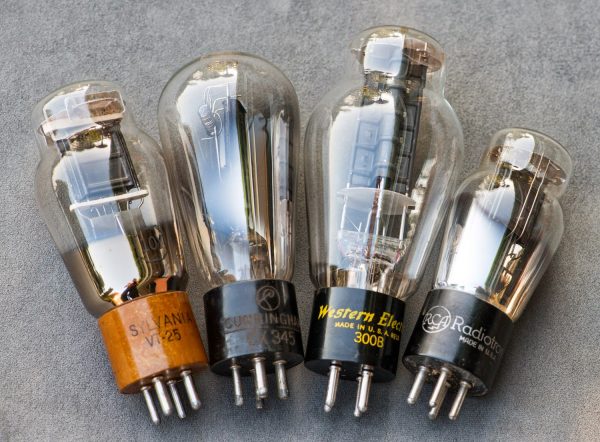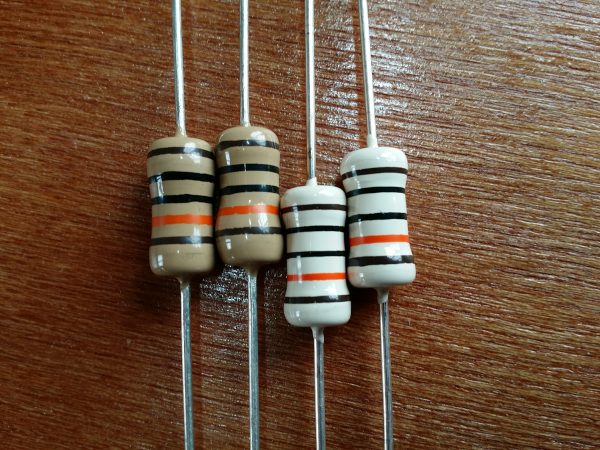BLACK GATE VK/WKZ VS AUDIO NOTE KAISEI POLAR/NON POLAR CAPACITORS REVIEW
Contestants:
Rubycon Black Gate VK 150uF/350V, VK 22uF/350, WKZ 100uF/500V
Audio Note Kaisei Polar 100uF/500V, Non polar 50uF/500V
Background
Black Gate (BG) capacitors, known for their unparalleled musical performance and relatively high price tag, have been out of production since 2006. The black gate capacitors amaze us with extreme quietness, pitch dark back grounds, huge sounds stage, staggering amount of low level musical information and harmonics and spectacular dynamics.
While having a cult status among audiophile circles, black gates are often misjudged because out of the box the BG capacitors tend to sound the opposite stated above, quite lame and top end less sound associated with typical electrolytic capacitor.
The misjudgement often occurs because people who judged them never really heard their true potential given the very long run in time and the required repeated run in after the device has been switched off and particularly being switched off for a prolonged period of time (>3 days).
BG caps undergo serious transformation during the first 100 hours of continuous run in time. Once the initial 100h or so pass, BG continue to improve becoming closer what I would call close to a perfect capacitor possible in a real world.
AN KAISEI is the latest offering exclusive by Audio Note UK ought to close the gap in the audiophile power supply capacitor market left by BG.
Both capacitors are/were produced in Japan by Rubycon.

Comparison conditions:
Comparison was made using a pair of identical Signature DACs by SW1X Audio Design.
All capacitors were used in the HV power supply section of the 6N6P/6N30P tube output stage.
All judgements expressed are a result based on a head to head comparison two identical DAC circuits before and after the burn in period of many hundred hours.
BG pros:
- Pitch dark background
- Brutal dynamics and radiant energy across the whole frequency spectrum
- Addictive mid- bass quality and quantity
BG cons:
- BG caps are not perfect; they lack clarity in the top midrange end (relative to KAISEI)
- Many hundreds of hours run in time
- Availability and price
KAISEI pros:
- Good level of Clarity /Transparency/Resolution but retaining warm sound
- Lack of haze relative to BG
- Silky smoothness in the midrange a la paper in oil foil (PIO) type caps
- Sound nice straight out the box with much less run in time needed
KAISEI cons:
- Not the last word in dynamics and mid bass weight relative to BG WKZ (one of the best sounding power supply caps known to me)
- LF range is lacking fullness relative to BGs
- Similar price relative to the original Black Gate retail price
In sum, KAISEI are not BG caps but they are close in some aspects such as clarity are even better than BG. Clarity and lack of haze on the mid top end is a very notable improvement of KAISEI over BG.
Overall the new KAISEI are reminiscent of the old out of production Elna Cerafine 350/500V caps where KAISEI offer a significantly better bottom end and midrange qualities. I would rather classify the KAISEI to be an improved cross between BG and the old out of production 350/500V Cerafines. KAISEI are one of the very revealing sounding caps out there.
KAISEI are very promising capacitors indeed. In our book, the KAISEI caps are the better ones in production power supply capacitors available today.
The only downside is that the LF range is lacking fullness relative to BG and the price.
Nevertheless, we all are patiently awaiting the long promised BG replacement and hopefully there will be a further improvement.
Read reviews about SW1X Products here
Read more about audio technology here.
Follow us on Facebook, Instagram, YouTube and Pinterest. Join the official SW1X Club




